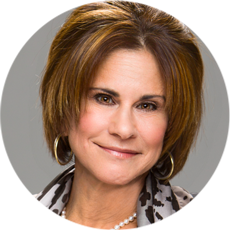Lauren Bailey, President of Girls Club, asked me to deliver the closing keynote at their first annual conference. This presented a challenge for me.
I teach sellers how to sell stuff…Now, I’m being asked to “tell my story” and share the failures and successes that got me where I am today. I had to be vulnerable and reflect rather than share my competence.
We spend a lot of time thinking and strategizing, but not nearly enough reflecting on why we do what we do, and how we might proceed with more honesty and clarity. We gather data and recipes for success. But information alone is never enough. Knowledge without wisdom leads to action without purpose.
Upon much reflection, I shared three principles that have shaped my success over years.
1) Forced Optimism
We can either look for what’s right, or we can look for what’s missing in our lives. When I focus on what’s working rather than what’s lacking, my confidence and my success grow exponentially.
You’ve heard the expression, “Do you see the glass as half-empty or half-full?” Top performers see their glass as overflowing. The best sellers not only look for reasons their qualified customers will purchase; they’re dumbfounded when they don’t.
This idea is even more critical when leading others. According to a new article in Harvard Business Review, The Feedback Fallacy, “Focusing people on their shortcomings or gaps doesn’t enable learning, it impairs it.”
2) Relentless Tenacity
Ross Perot once said, “No doesn’t mean no — just ‘not now’.” When I started my training company in 1997, I set out to see how many no’s I could get, knowing that after a certain amount of them, I would hear a yes. I called every prospect I could and reframed feelings of embarrassment and self -doubt when they rejected my offer.
I offered free training if the CEO would sit in, and even sent a pizza with a poem to a prospect who wouldn’t return my calls. Once you change your mindset regarding the word “No,” you’ll change your life.
Relentless tenacity also means giving each customer your very best.
When asked why he gave his all, even in statistically meaningless games, Joe DiMaggio responded: “There’s always a kid who came to the game to see me play for the first time, He deserves to see me give my all.”
Every audience deserves your best performance.
3) Compassionate Prioritization
I used to be “that woman.” I was the dedicated, childless executive who admonished other parents who requested time off to be with their families.
“What do you mean you don’t work on Christmas Eve?”
“A school play, what’s the big deal? Don’t they film them these days?”
What I learned over time is that unless we are true to every aspect of ourselves, we can never reach a sustained level of proficiency. When people use the phrase work-life balance, most of them imagine a seesaw. This implies that work is something to be balanced against your life. But the opposite tends to be true. When we have fulfilling, purposeful work it radiates through our lives. And when we have secure, loving relationships, they emanate through our work.
The key to purposeful self-reflection is simply that we do it often. We act, we reflect on our actions, and we make small changes to our actions. What are your life principles? What are the guiding philosophies that determine your daily practices? Stop and reflect.
 Shari Levitin helps sales teams bridge the gap between beating quota and selling with an authentic heartfelt approach. As the founder of the Shari Levitin Group, Shari has helped create over 1 billion dollars in increased revenue for companies in over 40 countries. Shari is the bestselling author of Heart and Sell: 10 Universal Truths Every Salesperson Needs to Know, a contributor to Forbes, CEO Magazine,and Huffington Post.
Shari Levitin helps sales teams bridge the gap between beating quota and selling with an authentic heartfelt approach. As the founder of the Shari Levitin Group, Shari has helped create over 1 billion dollars in increased revenue for companies in over 40 countries. Shari is the bestselling author of Heart and Sell: 10 Universal Truths Every Salesperson Needs to Know, a contributor to Forbes, CEO Magazine,and Huffington Post.



One Response
Oh, this is just a delightful perspective on adding value!